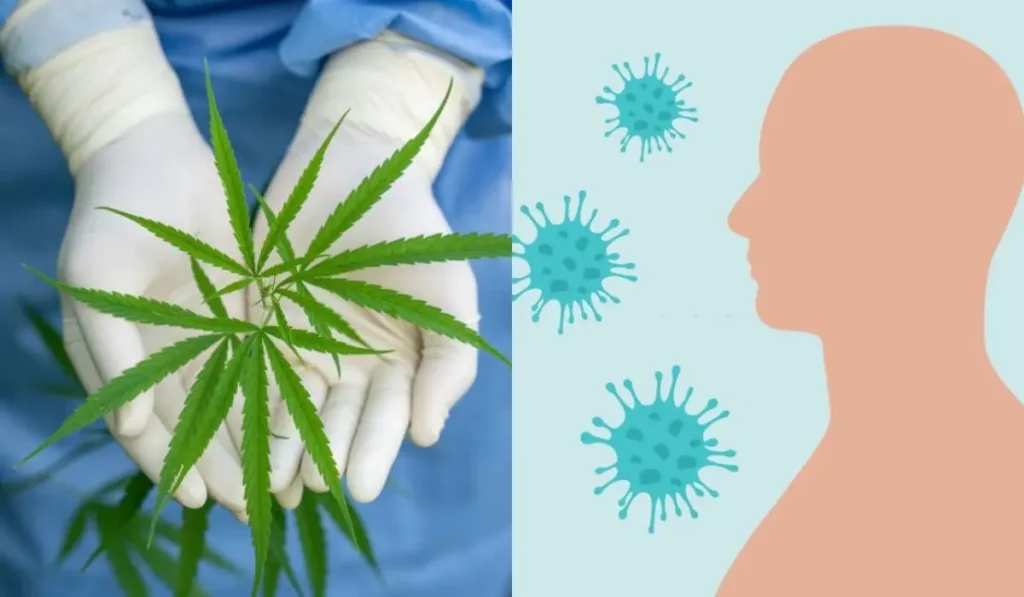The popularity of cannabidiol (CBD) has exploded in recent years, with users reporting benefits for conditions like anxiety, pain, and sleep disorders. But can CBD also give your immune system a boost? Research into the effects of CBD on immunity and inflammation shows promising results.
Keep reading to learn how CBD interacts with the immune system and its potential to support immune function.
Overview Of The Immune System

The immune system is a network of cells, tissues, and organs that work together to defend the body. Key components include:
- White blood cells like lymphocytes and phagocytes identify and neutralize threats.
- Bone marrow, thymus, and spleen produce immune cells.
- Lymph nodes that filter germs and coordinate immune responses.
- Antibodies and cytokines are released by immune cells to attack intruders.
A healthy immune system balances fighting infections while avoiding autoimmunity. Lifestyle habits like diet, exercise, sleep, and stress management promote optimal function. Immune suppression leads to an increased risk of infections and cancer.
➜ CBD Basics
CBD is one of over 100 cannabinoid compounds found in the cannabis plant. Unlike its cousin THC, CBD is non-intoxicating and does not cause a euphoric high. Early research indicates CBD acts on the endocannabinoid system, which regulates various processes in the body.
CBD is available in oils, edibles, capsules, and topicals. It’s said to provide therapeutic effects without THC’s psychoactivity. CBD is also generally well tolerated by most people. However, it can interact with certain medications so medical guidance is advisable.
➜ Anti-Inflammatory Effects
Inflammation is an important immune response to harmful stimuli like viruses or tissue injury. But excess inflammation contributes to autoimmune disorders, asthma, IBD, arthritis, and more. Studies reveal CBD exhibits potent anti-inflammatory properties.
For example, CBD was shown to reduce pro-inflammatory cytokines in a rodent model of diabetes. Clinical trials also found CBD lowered inflammatory markers in adults with diabetes and MS. This helps explain CBD’s effectiveness for inflammatory conditions.
➜ Antimicrobial Properties
Early test tube research indicates CBD has antimicrobial effects against certain drug-resistant bacteria like MRSA. One study showed topical CBD killed methicillin-resistant Staphylococcus aureus (MRSA) isolates from infected skin lesions.
CBD also displays antifungal properties. In a petri dish model, CBD inhibited the growth of multiple Candida yeast strains. However, human studies are still needed on CBD’s antimicrobial potential.
➜ Regulating Immune Cell Activity
CBD seems to balance immune system function by blocking overactivation and allowing normal defense mechanisms. Studies show CBD:
This modulation may help hyperactive immune cells from attacking healthy tissues as in autoimmunity while still fighting pathogens.
➜ Enhancing Viral Defense
Test tube research indicates CBD has the potential to inhibit viral entry and replication for certain viruses including hepatitis C, herpes simplex virus, and influenza.
Human studies found topical CBD strengthened barrier function to prevent herpes transmission. However, clinical research is still emerging on CBD’s antiviral effects.
➜ Improving Sleep
Adequate sleep is vital for proper immune function. CBD products can promote more restful sleep through calming, anxiety-reducing, and pain-relieving effects.
In a clinical trial of anxiety patients, CBD of 300mg per day increased sleep time and quality. Better sleep enhances immune defense against illness.
➜ Reducing Stress
Chronic stress weakens immunity by raising cortisol and exhausting immune cells. Human and animal research confirms CBD attenuates stress by reducing cortisol output and modulating the stress circuitry in the brain.
The stress relief provided by CBD oils, gummies, or vapes can protect the immune system from the harm of prolonged anxiety and fight-or-flight activation.
➜ Optimizing Overall Health
A healthy diet, active lifestyle, emotional well-being, and proper hydration support immune function. The therapeutic benefits of CBD for various conditions can promote health behaviors and quality of life conducive to immunity.
Additionally, CBD shows promise for reducing risk factors for chronic disease including its antioxidant, anti-tumor, and cardioprotective properties.
Conclusion
Preliminary studies substantiate CBD’s anti-inflammatory and antimicrobial effects that may enhance immune defense against pathogens and overactivity. Human research remains in its early stages but is rapidly expanding.
For now, CBD appears useful for supporting immune homeostasis through a multifaceted approach: regulating inflammation, assisting immune cell function, improving sleep, lowering stress, and optimizing overall wellness. Incorporating CBD under medical guidance could be beneficial for those seeking to supplement their immunity naturally.
FAQs
The legality of CBD varies by country and region. It’s important to familiarize yourself with local laws before purchasing or using CBD products.
CBD is not a cure for diseases. It may offer potential health benefits, but it’s not a replacement for medical treatments.
CBD can interact with certain medications, so it’s advisable to consult a healthcare professional before combining CBD with other drugs.
The onset of CBD effects can vary, typically ranging from 15 minutes to a couple of hours. Factors like dosage, administration method, and individual response play a role.

